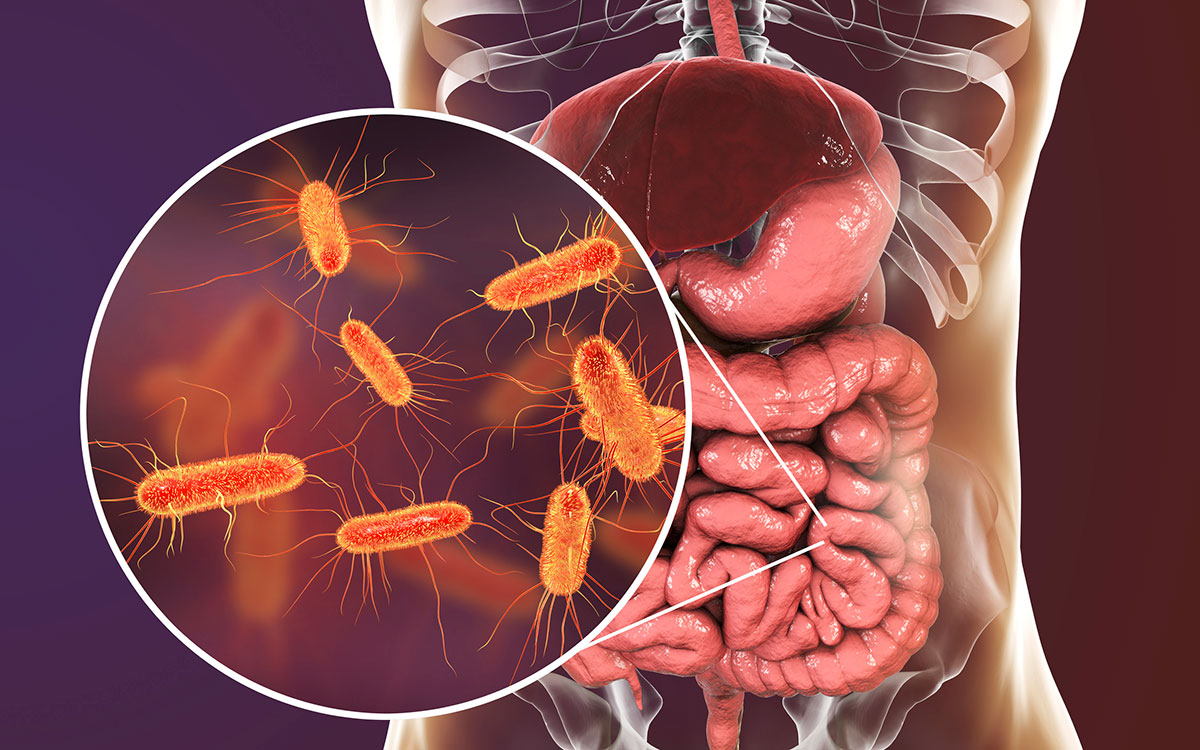“Go with your gut” now has some science behind it.
New research suggest that the gut microbiome, made up of millions of microorganisms that live in the human digestive system, do more than just digest and absorb nutrients — they may influence your mood, behavior and preferences.
These “gut bugs” can influence things like whether you like dark chocolate, as well some potentially more significant decisions.
“Your microbiome may even pick your mate,” said Dr. Glenn Treisman in a March 29 presentation at the Institute of Living Olin Neuropsychiatry Research Center. It turns out pheromones have a great deal to do with who you mate with. Who makes your pheromones? Your bugs do.”
“Gut bugs” or flora comprise almost half of the cells in the human body. With more than 1,000 species, the makeup of the flora varies dramatically in different areas of the gut and in each person.
Your brain communicates with these microbes through the enteric nervous system, which governs gastrointestinal function and houses the most neurons outside of your brain. Scientists are now learning more about the reciprocal role that microbes play in our behavior.
“The central nervous system programs your behavior, but so does your enteric nervous system. It’s learning about the environment, and your bugs are constantly changing because they’re in communication with the outside universe based on what you eat,” said Dr. Treisman, a Eugene Meyer III professor of psychiatric and behavioral sciences and medicine at John Hopkins University School of Medicine.
Factors such as stress level, food choices, antibiotics and bouts of gastroenteritis can all affect the makeup of the gut microbiome. In turn, the gut microbiome influences your mood, behavior and preferences.
Research is starting to examine the relationship between obesity and the diversity or makeup of the gut microbiome.
“The microbiome not only affects what you eat, but the efficiency with which you get calories, said Dr. Treisman. “Different people get different amounts of calories from the same food.”
In studies done on twins, the more obese twin was shown to have less diversity in their microbiome. Another study was done on obese rats, who had gastric bypass surgery performed on them. When fecal microbiota from these rats was transferred into other obese rats, they also lost weight, suggesting that the success of gastric bypass surgery may be due to a change in the microbiome rather than caloric restriction.
Other studies have linked levels of certain microbiota with diseases and disorders, including anxiety, depression, autism, Parkinson’s, and schizophrenia.
One such study found that patients with schizophrenia had 400 times more Lactobacillus than control patients, while another found higher levels of Clostridium in the stools of children with autism. Another study was able to reverse an exaggerated stress response in restrained rats by colonizing their guts with a Bifidobacterium species.
Although the research into the gut microbiome is in its earliest stages, it does offer hope for improving the diagnosis and treatment of many common conditions, explained Dr. Treisman.
And as for what probiotics we can take to improve our health?
“We don’t know,” Dr. Treisman said. “It’s very individualized and any findings are preliminary. My advice is don’t take probiotics if you’re healthy and well, but if you’re sick, probiotics are something to consider.”
For more information about the Olin Neuropsychiatry Research Center, click here.

